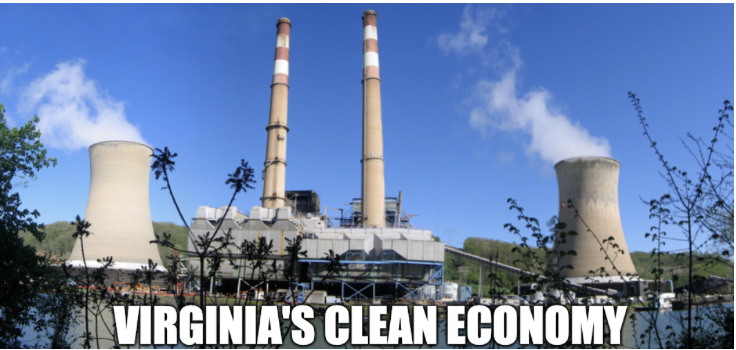Virginia passed its Clean Economy Act in 2020. On its face, it sounds promising. It establishes a renewable portfolio standard that mandates that the two utilities in the state, Dominion Energy and Appalachian Electric Power, produce 100 percent renewable electricity by 2045 and 2050, respectively. It also established energy efficiency standards. It sounds like a great plan, but can they pull it off?
In 2023, Dominion filed its Integrated Resource Plan, or IRP. An IRP is a utility plan for how it will meet anticipated electric load, and what resources the utility will use to keep the lights on. Dominion’s plan for future resources that comply with the VCEA and meet an unprecedented annual 5-7% increase in load created by the proliferation of new data centers in Northern Virginia consists of new solar and offshore wind additions, energy storage, and thousands of megawatts of incremental small modular nuclear reactors, or SMRs in order to retire all company-owned, carbon-emitting generation by the end of 2045. Dominion also plans to construct several new gas combustion turbines to address future energy system reliability needs. But that’s not all. Dominion also needs to increase its imports of electricity from other states to more than 10,000 MW. Dominion stated that this amount of imports “raises significant concerns about system reliability and energy independence, including over-reliance on out-of-state capacity to meet customer needs.”
Considering that one good-sized fossil fuel or nuclear power generator produces around 1,000 MW, that’s at least 10 electric plants in surrounding states that would exclusively serve Virginia’s needs. Virginia’s clean economy act is coming at the expense of the clean economies of surrounding states. Virginia’s law only concerns itself with power generation in Virginia, but in doing so, it places greater burdens on the surrounding states to power Virginia's economy. Virginia has turned itself into a power parasite – crowing about its clean energy economy while ignoring the fact that it is importing more and more dirty generation from other states in order to power that economy. There is no invisible barrier that keeps emissions from surrounding states from fouling Virginia’s air. Virginia’s “clean economy” is nothing but a virtue signal, and a very expensive one at that.
Would it be cleaner for Virginia to support its own load by building enough of its own new generation to meet VCEA, instead of importing dirty energy from surrounding states? Of course it would. But it would be much more expensive. Virginia’s clean virtue only extends as far as it can raise electric rates without killing its own economy. If Virginia really got 100% of its electric supply from non-emitting sources located within the state of Virginia, electricity would be so expensive that nobody would want to live or do business there. Instead, Virginia is virtue signaling and building its own economy at the expense of surrounding states.
Recently, the Virginia State Corporation Commission rejected Dominion’s IRP because the proposed new gas turbine generators failed to meet the standards of the VCEA. Dominion must come up with a new plan that does not build any new emitting generators. At what point does Virginia’s virtue signaling end and the real work of creating an actual clean economy begin?
Something has to change. Either Virginia has to build its own clean generation to serve its ever-increasing load and actually have a clean economy, or Virginia has to stop building the data centers that are creating that load. More transmission to import fossil fuel electricity from West Virginia to meet load is not the answer.
It’s simply hypocrisy at the highest level. Virginia is not clean, despite its clean energy laws. It’s a filthy parasite feeding off the misery and ruined environments of neighboring states. At some point, those dirty plants in West Virginia will shut down. They’re getting older and more expensive to operate, and they’re getting squeezed by federal energy policy. If Virginia thinks that there will be more than 10,000 MW of generation available to import in 2045, it needs to think again. Shoving Virginia’s energy burden off onto neighboring states and thinking we won’t notice is not sustainable.
It’s up to you, Virginia. Clean or dirty? Energy freedom or filthy parasite? The choice is yours.

 RSS Feed
RSS Feed